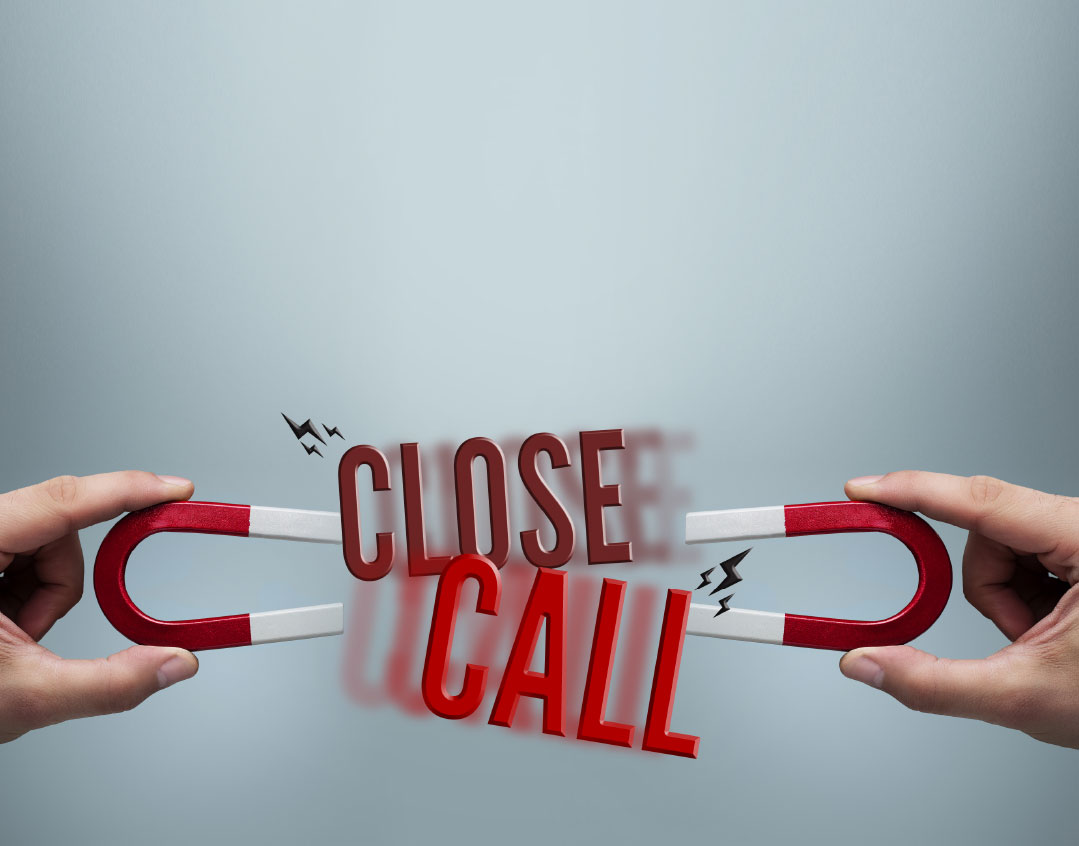Close Call: Afterthoughts
| August 7, 2019
If you’re ashamed to tell people about the friendship, that’s an important sign that shows you don’t feel proud of it
R
elationships are such a big part of our lives and represent so much of who we are, how we feel, and the quality of the life we live. I’m so impressed with Devoiry’s story, and I’m sure it caused many of you to reflect on the friendships in your own lives. Thanks for inviting me to weigh in on some of the questions it brought up.
How can I differentiate between a regular BFF and an unhealthy friendship?
Healthy friendships enhance life and add joy to it. Healthy friends are sensitive to our needs, feel for us in our hard times, and are happy for us and with us during the good times. We part from our friends, or get off the phone with them, feeling better about ourselves and our situation. Friends encourage us to grow, and ideally, they don’t get jealous of any new friends we make. Good friends are supportive of one another and spend time both talking and listening in a balanced way.
Unhealthy friendships, on the other hand, very often leave us feeling bad about ourselves and the relationship. We come away from unhealthy friends feeling drained, and we often dread seeing them again. They’re not sensitive to our needs and don’t allow for changes. They have unrealistic expectations of us — like demanding we spend endless amounts of time with them, even if it means giving up on our other friends, interests, sleep, and family time. I remember feeling so depleted by a certain friendship that by the time I was ready to move on, I didn’t just need better boundaries, I needed barbed wire!
What are some warning signs that a particular friendship should not be pursued?
Unhealthy friends are possessive. They don’t like seeing us with other friends. They usually lack empathy and understanding, making things “all about them.” At their worst, unhealthy friends can become aggressive and insulting. You feel like you can never do enough for them, never get it right, never totally meet their needs. And you can’t. Because they are very needy and make you feel guilty so that you keep on trying to do more with them and for them. You end up feeling badly about yourself, and your life is definitely not better when they’re a part of it. If you’re ashamed to tell people about the friendship, that’s an important sign that shows you don’t feel proud of it. Deep down, you know it’s not okay.
This doesn’t mean that these friends are bad people. It may just mean that they’re too much for you. Years ago, I learned from a very wise mentor of mine that the way people make us feel gives us information about the way they feel inside. An unhealthy friendship makes you feel all sorts of difficult feelings: guilty, incompetent, confused, unhappy, hopeless, insecure… so you can imagine the pain of the person you’re dealing with. It’s hard to build a real relationship with someone who is in that difficult of a place. It’s not that you’re not doing enough, it’s that it feels like too much because it is too much.
Can there be a negative impact from an overly intense friendship?
It’s not easy to end a friendship, especially when the other party can be manipulative and make you feel guilty. But staying in an unhealthy friendship comes at a great cost. In 2014, an entire issue of the magazine Health Psychology was dedicated to defining the long-term impacts of friendship. A “healthy social network helps your heart, your immune system, and your response to stress.” So, you can imagine what the unhealthy friend does for us! Another thing to consider is that one good relationship leads to others. There’s so much we gain from the right friendship: We learn to trust, to give and take, to listen and feel heard in return, to let ourselves be vulnerable about sharing. We learn what it means to celebrate someone else’s success and to really feel for her in her challenges. That’s all great stuff to bring into future friendships and makes us feel stronger and better about ourselves as people. An unhealthy friendship can leave us scared to trust again, afraid to open ourselves up to what may be an exhausting ride. And if you believe what the unhealthy friend tells you, you may feel like the problem is all about your issues and insensitivities, leaving you feeling that you might not be cut out for good friendships.
The good news is that you can use your experience in an unhealthy friendship to learn about what doesn’t work and know what to look out for in the future. Focus on the fact that your “gut” told you something was off and inappropriate, and learn to trust those messages more the next time you think and feel them.
Should I feel guilty about dropping my friend if I find her presence in my life stifling?
It will be hard to break off an unhealthy friendship, but it will be much harder not to. How should you go about ending a friendship that didn’t work? You can try to slowly ease out of the friendship if possible, having less and less contact and being less available, and seeing if the message is received. Sometimes the feeling is mutual, and the other party will be relieved to move on, too. But that may not happen. You may need to end the friendship from your side and that’s not easy. If possible, the most sensitive way to do it is in person. Prepare beforehand what you want to say, and be honest. Don’t make it about blame: Focus on how you feel and what wasn’t working for you. Show sympathy, making it clear that you know it’s not easy and that you are so sad to be causing hard feelings. You can say what you liked and admired about her and the parts of the friendship that you’ll miss. And express forgiveness for any hurt you experienced, to leave off with closure and hopefully less questions about it being a personal issue.
I ended the friendship, but now I feel awful! How do I know I did the right thing?
It won’t be a simple thing to get over, even if you are relieved. You’ll be worried about how she’ll take it, feel unsure if you should have done it, and feel guilty that you made her life even harder. Give yourself time for the sadness and hard feelings to be processed. Focus on your healthy friendships and family connections and consciously try to move on. If you are truly worried about the old friend and think she may need help in a real way, speak to a trusted adult to find out the best way to help make that happen.
Don’t beat yourself up for having fallen into an unhealthy situation. Life is about a lot of ups and downs and lessons we learn along the way. Be proud of the fact that you invested in a friendship and that you learned about your values, needs, and abilities. Just because it didn’t work out doesn’t mean that the process isn’t one you’ll grow from. And realizing why it didn’t work took bravery and honesty, qualities that you can feel grateful for. You will bring all of the friendship skills you learned to all your future healthy friendships, and you will see how much lighter, happier, and appreciated you feel with your new friends.
(Originally featured in Mishpacha Jr., Issue 772)
Oops! We could not locate your form.

